If you park a vehicle with air suspension, the air suspension can remain active for up to an hour, even if the vehicle is switched off. If you then raise the vehicle using the jack, the air suspension will attempt to even out the vehicle level.
The jack can tip over.
This prevents the vehicle level from being automatically readjusted or manually raised or lowered.
If you do not position the jack correctly at the appropriate jacking point of the vehicle, the jack could tip with the vehicle raised.
On slopes, the jack could tip with the vehicle raised.
If you do not position the jack at the jack support points provided for this purpose, you could damage your vehicle.
There are no persons in the vehicle.
The vehicle is prepared for changing a wheel More.
Only position the jack on the jack support points intended for this purpose. You could otherwise damage the vehicle.
Only use the vehicle-specific jack that has been tested and approved by Mercedes-Benz to raise the vehicle. If the jack is used incorrectly, it could tip over while the vehicle is raised.
The jack is designed only to raise the vehicle for a short time while a wheel is being changed and is not suitable for carrying out maintenance work under the vehicle.
Avoid changing a wheel on uphill and downhill slopes.
The jack must be placed on a firm, flat and non-slip surface. If necessary, use a large, flat, load bearing and non-slip underlay.
The foot of the jack must be positioned vertically under the jack support point.
Do not put your hands or feet under the vehicle.
Do not lie underneath the vehicle.
Do not start the vehicle and do not release the parking brake.
Do not open or close any doors.
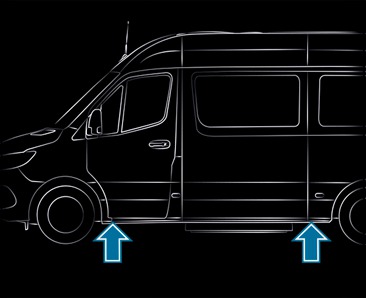
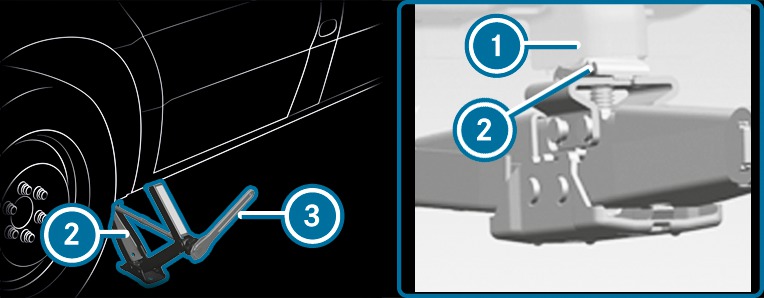
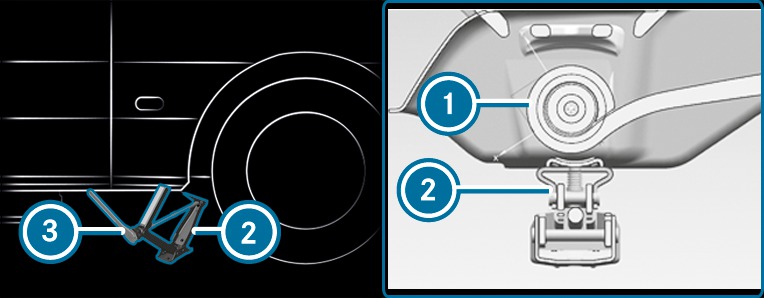
 at jack support point
at jack support point  .
.  .
.  from the tyre-change tool kit on the hexagon nut of the jack so that the lettering "AUF" is visible.
from the tyre-change tool kit on the hexagon nut of the jack so that the lettering "AUF" is visible.  from the tyre-change tool kit on the extension rod until the lettering "AUF" is visible.
from the tyre-change tool kit on the extension rod until the lettering "AUF" is visible.  clockwise until jack
clockwise until jack  rests completely against jack support point
rests completely against jack support point  , and the base of the jack lies evenly on the ground.
, and the base of the jack lies evenly on the ground.  until the tyre is raised a maximum of 3 cm off the ground.
until the tyre is raised a maximum of 3 cm off the ground. 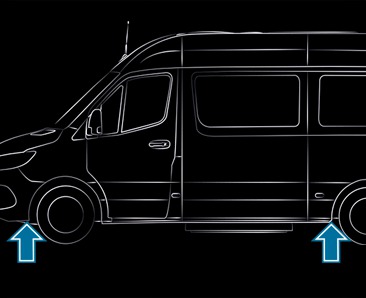
Only use the middle rod and the pump lever rod with the largest diameter for the jack as a wheel wrench extension. Only insert the middle rod on the wheel wrench, and always as far as it will go. Otherwise, the rods could bend and deform so much that they can no longer be used as pump levers for the jack.
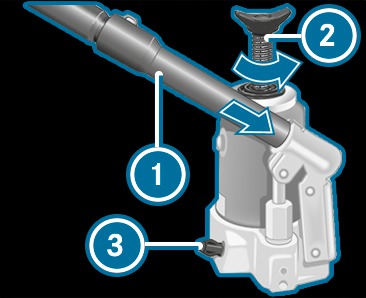
 for the jack into the wheel wrench extension.
for the jack into the wheel wrench extension.  .
.  to turn pressure release screw
to turn pressure release screw  clockwise to the stop.
clockwise to the stop. Do not turn pressure release screw  more than one or two full turns. Hydraulic fluid could otherwise escape.
more than one or two full turns. Hydraulic fluid could otherwise escape.
 with the largest rod into the recess on the jack and secure by turning it clockwise.
with the largest rod into the recess on the jack and secure by turning it clockwise. 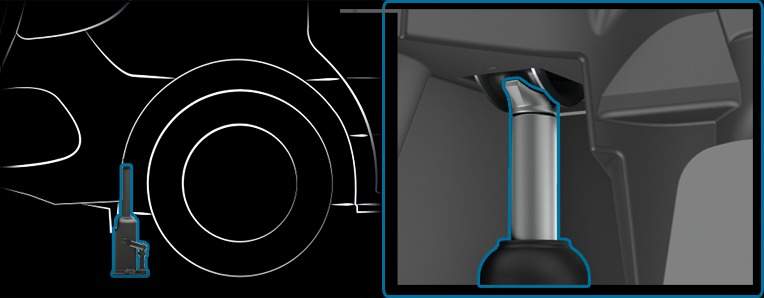
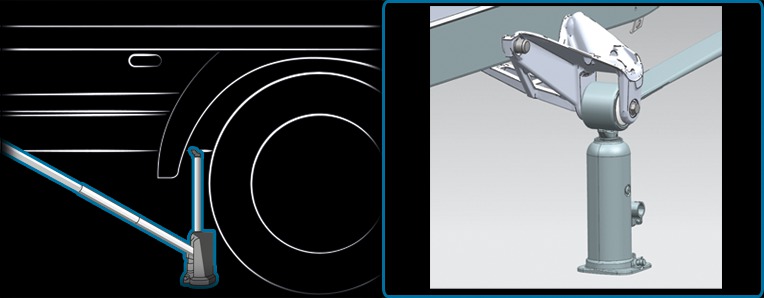
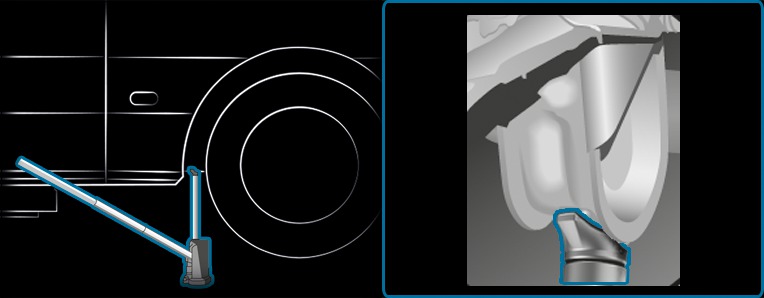
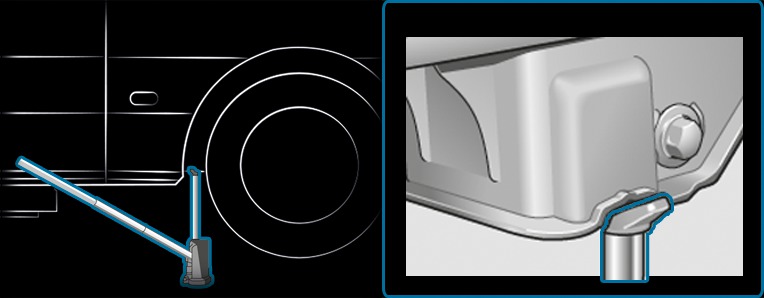
 anti-clockwise as far as it will go.
anti-clockwise as far as it will go. 
